The Netherlands is a great country to live in, mostly if you like rain. In order to choose where to live, you always have to consider what your needs are, where you spend more time and what is a priority for you. The most popular cities to live in the Netherlands are Amsterdam, Rotterdam, The Hague and Utrecht, the biggest and most populated cities in the country. Why is it so?
The most popular places to live in the Netherlands are the 4 biggest cities: Utrecht, The Hague, Rotterdam and Amsterdam. These cities have proven to offer it all, job opportunities, great cultural options, they are well communicated and kids-friendly.
| Culture | Housing | Work | Transport | Kids | |
| Amsterdam | Great! | Bad | Great | Great | Good |
| Rotterdam | Great | Good | Great | Great | Average |
| The Hague | Good | Good | Good | Good | Good |
| Utrecht | Good | Bad | Good | Good | Good |
Is it important to have a lot of cultural activities going on around you? how far away from work is it? Is it good for kids? I have tried to answer all of these questions with the knowledge that I have after several years of living in this beautiful country. If you are interested to know why these 5 cities are the best to live in and what my experience has been, keep reading!
Living in the Netherlands
The Netherlands is a European country located by the Northern Sea coast. Besides being one of the smallest countries of Europe (41,543 km2) is a very populated country (over 17 million people). According to certain rankings, the Netherlands is one of the best, if not the best country to live in. And here there are some common facts about this country:
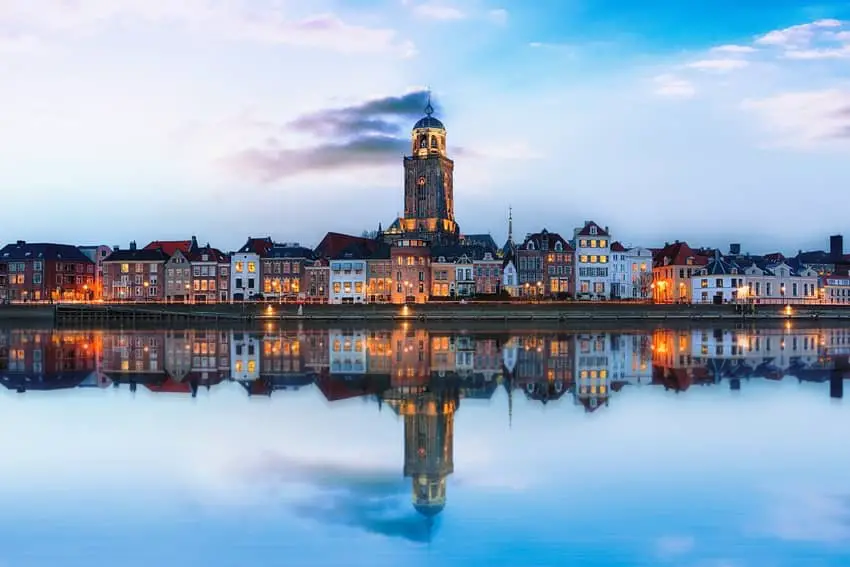
- Good for kids: No matter what city you choose to live in, it is good for children. I have lived in Amsterdam as well as in the middle of nowhere in Gelderland. And during summer and winter holidays there were many activities planned for children, no matter where. Children can cycle everywhere and go alone to school when they are older. Public transportation is free or they get a discount and this is the case in the whole country. You can also ask for Government help if you have children in the Netherlands (read more about it here).
- Housing is expensive and hard to find everywhere: once again, no matter where you are, renting and buying is always expensive. There are some cities where it is easier to find where to live, mostly small towns in the suburbia of big cities.
- Culture is important: there are museums of everything everywhere in the country. If you get a Museumkaart or have some discount (for younger children or toddlers, for instance), you have many options. I discovered when I moved here that no matter the day of the week, if I wanted to go out or do something, I was able to find something to do.
- Well-communicated by train and highways: the whole country is connected by bike paths (yes, believe it or not, you can cycle literally everywhere), by the Dutch train system and by highways. No matter where you choose to live, there is be a possible connection by public transportation to go everywhere.
- Small country: you can go everywhere in the Netherlands in less than 3 hours. No matter where you are, you can go literally everywhere you want in the country and come back in the day, easily. The whole country is well-connected, as I was saying, and it is possible to live in a different city to where you work and commute to work. That is not a problem.
- Dutch language: they speak English EVERYWHERE. Of course, you will have higher chances to find an English-speaking job or to be able to speak more English in bigger cities. For English schools, you will have to choose the biggest cities: Amsterdam, Rotterdam, The Hague and Utrecht. In any case, unless you go to the middle of nowhere in the Netherlands, you will be able to speak English.
- Weather: it’s just as bad everywhere. I remember asking a friend who was in Rotterdam when I was in Utrecht what the weather was like there. He thought I was teasing him: exactly the same everywhere, maybe the rain will take a couple more minutes to arrive.
Among the most popular cities to live in the Netherlands, we have those on the table: Amsterdam, Rotterdam, The Hague and Utrecht. I classified the level of culture, housing, work offers, transport and kids, in great for it, good for it, average or bad. If you want to know what is the specific case for each of them, keep reading:
Amsterdam
Amsterdam is the capital of the Netherland and without a doubt, the most popular city in the country. It is mostly well-knowing because of its canals as well as the big amount of events and activities such as museums and parades that take place there all year round. What do you need to consider to move here?
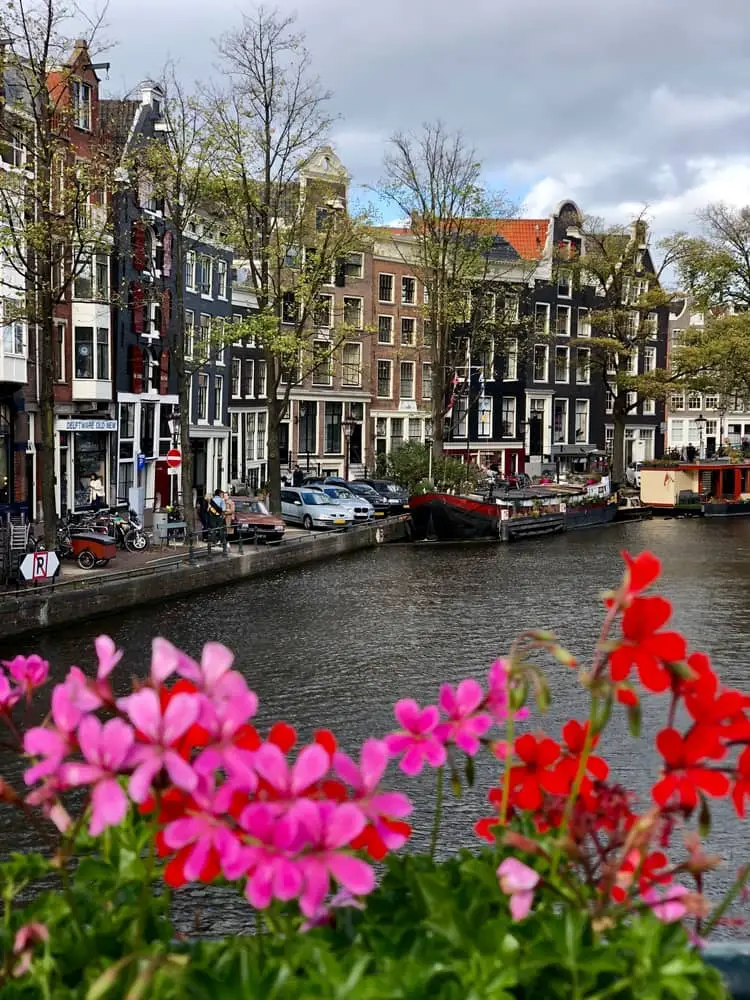
CULTURE: Great! After living in Amsterdam for a couple of years I can tell you that you won’t have time to get bored. There is always going on in the city. Amsterdam has the biggest amount of museums in the Netherlands, there are always events and activities going on, parties, festivals and everything you want for all ages: winter markets and ice skating, museums, zoo, great coffee places and more.
HOUSING: Bad. I have to admit that moving to Amsterdam is a little bit of a nightmare. It is bad, it’s expensive, it’s what everybody wants and that is why owners in Amsterdam have the right to do whatever they want. Expect small apartments for a lot of money, no registration possible and without a lot of facilities. If you have a great job there are always great apartments to be rented, but it won’t be the easiest to rent it either.
WORK: Great! Since back in the day of its foundation (read the origins here) up until now, Amsterdam has always been one of the headquarters and important trading centres in Europe. There are a lot of big companies in the city, such as Nike, Oracle and Tesla. This is a great source of jobs. Another important job source is tourism. It is definitely easy to find a job here. Most companies will appreciate you speaking English and any other language that is not Dutch, definitely and advantage.
TRANSPORT: Great. Close to the airport, Schiphol, amazingly well-connected to the rest of the country, night busses, trams, bicycle–friendly like the rest of the Netherlands and just as good to move around as the rest of the country.
CHILDREN: Even though it is not the most children friendly place in the Netherlands, as I was saying, the whole country is children-friendly.
Rotterdam
Rotterdam is the Maritime city of the Netherlands. Having the biggest port in the whole of Europe, is the house of the Maritime Museum, modern buildings and bridges. Rotterdam is one of the favourite places to live in the Netherlands. Why is so?
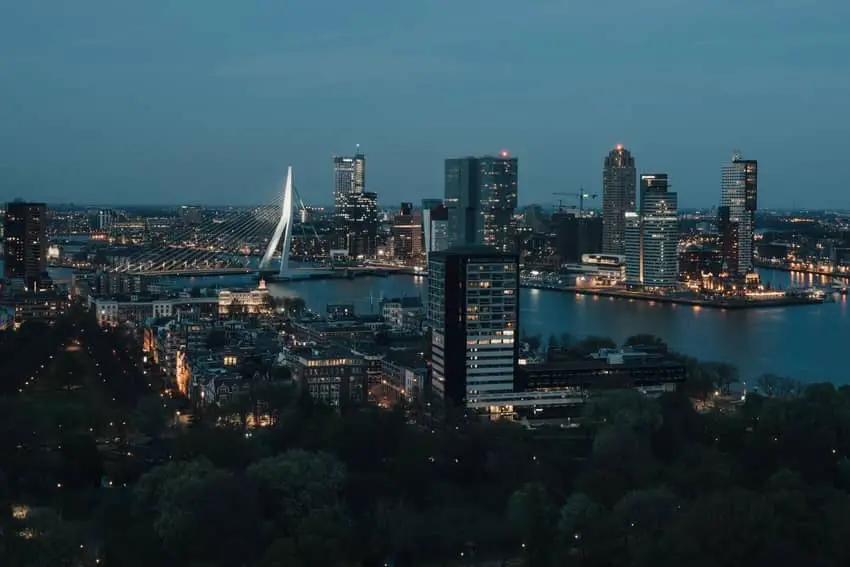
CULTURE: Great! Rotterdam represents culture in itself. The amazingly design modern and art decó buildings all over Rotterdam makes it a museum on its own. Besides, it is famous because of the big number of art galleries there are in Witte de Withstraat.
HOUSING: Good. It may not be that easy to find a place, but definitely easier than in Amsterdam. Unlike Amsterdam, Rotterdam is mostly big buildings, which makes it easier to find an apartment to move in to. It is also a little cheaper!
WORK: Great! Since Rotterdam has one of the biggest ports in Europe and the biggest one in Europe, there are a lot of companies located here. It is easy to find a job speaking another language.
TRANSPORT: Great. Almost as good as Amsterdam, very Dutch.
CHILDREN: Average. Even though like Amsterdam, it is not the most children friendly place in the Netherlands, as I was saying, the whole country is children-friendly. Maybe a little less than other cities of the Lower Lands.
The Hague
More metropolitan than Rotterdam, The Hague is well-known for its variety of cultural, its international environment and outdoor activities, such as visiting museums, long beaches and boat afternoons. The Hague is the seat of the Netherlands’ Government, home for most embassies, 150 international organisations and the Royal Palace. This is definitely a city where you can speak English and other languages are involved.
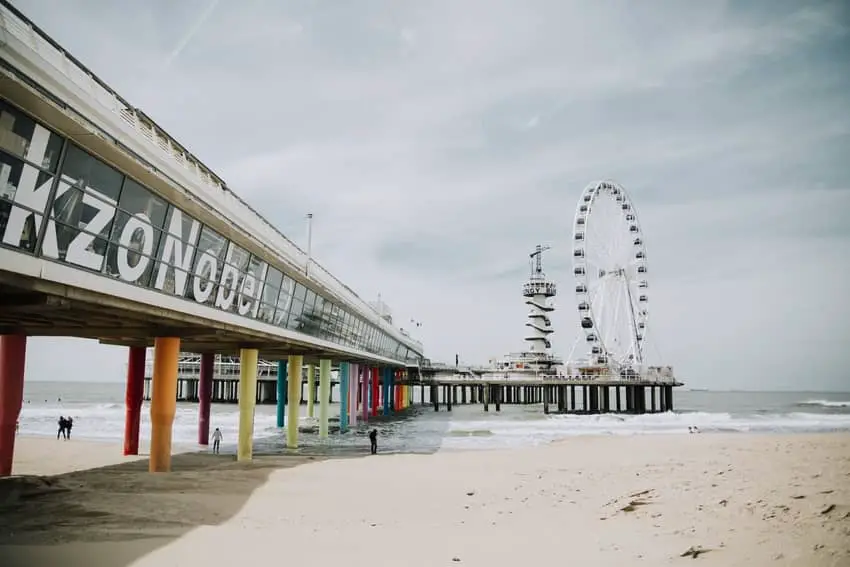
CULTURE: Great! There are several museums (my favourite is the Gemeentemuseum Den Haag), as well as the beautiful Government buildings, embassies and a lot of history, including the Royal house.
HOUSING: Good. It may not be that easy to find a place, but definitely easier than in Amsterdam. Unlike Amsterdam, Rotterdam is mostly big buildings, which makes it easier to find an apartment to move in to. It is also a little cheaper!
WORK: Great! Since Rotterdam has one of the biggest ports in Europe and the biggest one in Europe, there are a lot of companies located here. It is easy to find a job speaking another language.
TRANSPORT: Great. Almost as good as Amsterdam, very Dutch.
CHILDREN: Average. Even though like Amsterdam, it is not the most children friendly place in the Netherlands, as I was saying, the whole country is children-friendly. Maybe a little less than other cities of the Lower Lands.
Utrecht
This is my second favourite city in the Netherlands: Utrecht is the heart of sustainable development in the Netherlands, it has some of the best universities in the whole country and an amazing environment to work in. Healthcare is also a predominant sector in Utrecht because of the University Medical centre, making a difficult topic for expats a little bit easier to understand and access. It is a city where it is easy to find jobs opportunities in the research or education fields.
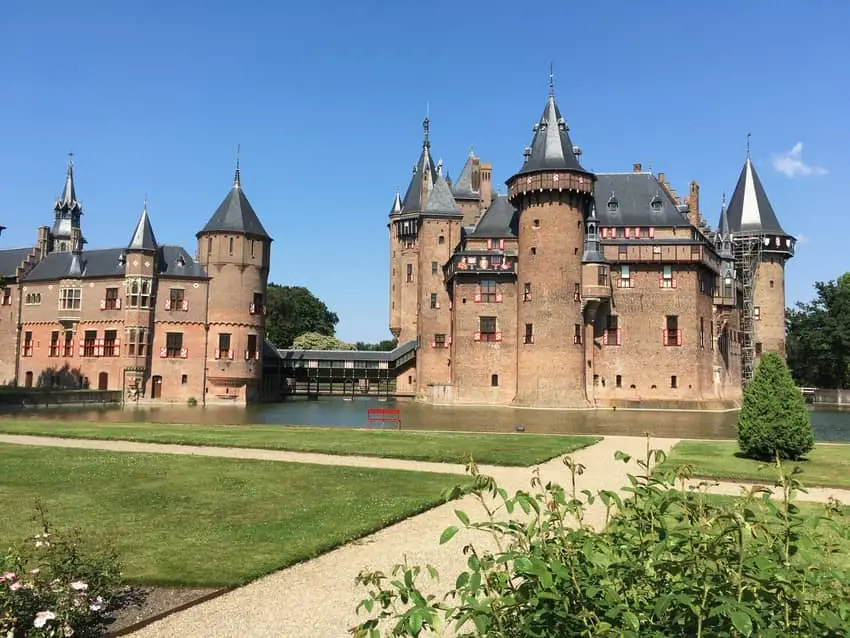
CULTURE: Good. There are not as many museums as in other Dutch cities, yet there are a lot of festivals and activities for the whole family but mainly for students going on. The Dutch film festival, many concerts at Tivoli Bredenburg and more.
HOUSING: Average. It may not be that easy to find a place, but definitely easier than in Amsterdam. Not much though… Housing is harder to find for expats. It is also a student city, so most accommodations are shared and just for temporary rent.
WORK: Great! Since we are talking about a student city, besides being the third biggest city in the Netherlands, there are a lot of jobs related to students, from working at the university to providing all types of service for younger people.
TRANSPORT: Great. Very Dutch, great train station and very strategic because Utrecht is in the middle of the country, a compulsory connection to go North or South. You will definitely need a bike to move around the city.
CHILDREN: Good. A lot more child-friendly than Amsterdam and Rotterdam. Even though we are talking about a big city, it’s just not as big as Amsterdam or Rotterdam. It has a lot of family activities, parks and more.
My Experience Living in the Netherlands
I have lived in the Netherlands for 3 years, and in those three years, I have moved 6 times. I have had the chance to live in all the different types of locations there are in this country: the capital, big cities, small town and countryside. I have also visited more or less 80% of the country and here is what my experience has taught me:
Capital: Amsterdam
As a student and young worker I have enjoyed living in Amsterdam a lot. I can understand we are talking about a chaotic and sometimes stressful place but I wound’t change it. Amsterdam is great mostly for culture. Since I have my museumkaart I plan museum visits a couple of times a week, popping in even before work. Amsterdam is also great if like me, you travel a lot. A 10 minutes train to the airport is just ideal. Besides, I think it is the easiest place to find a job as a foreigner and also the easiest one to get studying opportunities. If you want to know more about studying in Amsterdam, read this article.
Big City: Utrecht
During my first year in the Netherlands, while I was doing my Erasmus I lived in this beautiful city. Aside from Amsterdam, Utrecht is my favourite city in the Netherlands. In my opinion, it is like a mini Amsterdam, with all the good things minus the tourists and the chaos. It is, however, a very busy and active city, always new events and restaurants to go to. It is great to live there as a student (even though accommodation is just as hard to find as in Amsterdam) and as a family.
Small Town: Zeist
In case you don’t know, Zeist is one of the small towns outside Utrecht, reachable by bike and a short bus ride. It is a great way to live close to a big city such as Utrecht, without having to suffer a lot to find accommodation and not paying as much. This is something very commonly done in the Netherlands, living in small towns outside the big cities is always a great option, since it is very easy to use transportation, even your bike! In these towns there are supermarkets and some bars, so the real fun doesn’t happen here. They are more like dormitory or family towns.
Living in smaller cities around the bigger ones is very common in the Netherlands because of how hard it is to find accommodation and how easy it is to move around with public transportation. The same I was doing in Zeist while studying in Utrecht, people do between Amstelveen or Hilversum and Amsterdam, Delft or Gouda and Rotterdam and even Leiden and The Hague. Something I would recommend if you want to have a higher quality place to live and you have to work in the bigger cities.
Countryside: Gelderland
I have lived for the winter months in the middle of nowhere in Gelderland. The Dutch countryside is cold, isolated and beautiful. I used my bike to go everywhere, even doing up to 30km every day, even to go to the supermarket meant going to another town. I loved it! I really got the experience of living the Netherlands. It is great for families, but you do need a car do be able to do a normal life, and at the end of the day, everything is far away from you.
Islands
I haven’t lived in any of the Frisian islands. I have spen there a couple of weekends and that is as much as I would like to do. Unless you have a job there it is quite isolating. Ferries don’t go all the times during the weekends and the closest cities are also relatively far away. If you are a writer in the hunt for peace and inspiring views, I would recommend it. For cultural and historical experiences, I wouldn’t.